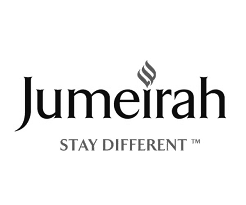How can technology cut costs in hospitality (without affecting service)?
Want to reduce costs without cutting standards?
Discover how smarter tech choices can streamline your operations and strengthen service where it matters most.
Key takeaways
- – Cloud and AI tools can reduce admin while enhancing guest experience.
- – Integrated systems improve speed, accuracy, and personalisation.
- – Cyber security doesn’t just protect data, it safeguards your brand reputation.
- – Many hotels can optimise existing tech instead of starting from scratch.
Rising costs. Margin pressure. A guest who expects nothing less than exceptional service at every touchpoint.
For independent luxury hotels, cutting costs mustn’t come at the expense of experience. But sticking with outdated systems or overloading staff with manual tasks isn’t sustainable either.
So how can technology help reduce costs and improve efficiency without compromising your standards? In this guide we’re sharing where smart, well-supported tech delivers meaningful savings, and the common misconceptions to avoid.
Cloud technology: It’s smarter, but not always cheaper
Cloud-based systems promise efficiency, but they’re not a silver bullet. While centralising operations and reducing hardware costs can drive savings, poorly scoped migrations or unused licenses can quickly inflate spend.
Well-implemented cloud systems make it easier to coordinate across multiple properties, improve service consistency, and safeguard data. All without creating visible disruption for guests.
What works:
- – Cloud-based PMS and VoIP for flexible, scalable infrastructure
- – Secure remote access for management teams
- – Regular reviews and audits to monitor actual usage and seasonality
💡 Efficiency isn’t just about cost-cutting. It’s about removing friction across the guest journey.
AI that supports the human touch
The real role of AI in luxury hospitality? Doing the work no one has time for, not replacing human service.
Despite all the hype it really wasn’t until 2024 that AI systems finally became reliable enough for real-world hotel operations. That means as an independent operator you’re perfectly positioned to adopt these tools ahead of the curve.
Practical applications:
- – Rota forecasting and labour optimisation
- – Accounts payable automation
- – Onboarding workflows that accelerate training without reducing quality
- – Early-warning indicators for staff retention risk
- – Waste reduction in F&B operations
💡 Automating behind-the-scenes admin allows your team to focus on what matters most: discreet, attentive, human-led service.
Integration: reducing complexity without losing control
Overstacked tech ecosystems are a growing issue in hospitality. Trying to manage everything through a single platform may sound appealing, but it often results in inflexible systems and limited visibility.
What you need instead:
- – Best-in-class systems that integrate easily (PMS, guest Wi-Fi, spa booking, concierge services)
- – Automation that simplifies routine touchpoints without losing personalisation
- – Integrated guest profiles that ensure VIPs are recognised across visits and departments
💡 Technology should elevate, not limit, guest experiences.

Cyber security: protecting brand, privacy and trust
Luxury hospitality is as much about trust as it is about high-end amenities and thread count. And in a high-touch, high-profile environment, a data breach can deal a devastating blow to your reputation.
The right tech can help strengthen your cyber security and give you peace of mind that guest data and your hotel systems are protected.
Remember:
- – Guest privacy and discretion are non-negotiable
- – Cyber security is about protecting your brand promise
- – From payment processing to digital concierge platforms, security needs to be built in, not bolted on
💡 Today’s discerning guest expects the same level of care for their data as they receive in person.
Optimising existing tech (not just buying new)
Many hotels already own systems that can improve efficiency, they just aren’t fully used or properly supported. Don’t let your current setup hold you back, or rush into wholescale overhauls when they’re not needed.
How to get more value from your IT:
- – Conduct regular tech audits
- – Provide ongoing training for new staff
- – Work with a specialist partner who understands luxury hospitality operations
As an example, to increase repeat bookings and attract new guests you could implement tracking systems that measure your spend – like, are guests engaging with entertainment you’re putting on, or is one F&B section performing better than another.
💡 You don’t always need to invest more; you need to invest better.
Invisible savings, visible service
The best cost savings are the ones your guests never notice because they enhance, not diminish, their experience.
What these look like:
- – Automated pre-arrival preferences
- – Slick mobile check-in/check-out
- – Streamlined back-office operations that free up staff for front-of-house interactions
- – Fast, reliable connectivity in guest rooms, spas, restaurants, and lounges
💡 When service feels effortless, it’s often because the tech behind it is working exactly as it should.
Efficiency is the real luxury
Independent doesn’t mean unscalable. And luxury doesn’t mean inefficiency.
With the right systems in place, and the right support behind them, you can reduce costs, streamline operations, and elevate service delivery in one move.
We’re not suggesting you trade quality for savings. It’s about making operational excellence more sustainable.
Want to explore how technology can help you cut costs and keep guests happy? Talk to our team.









